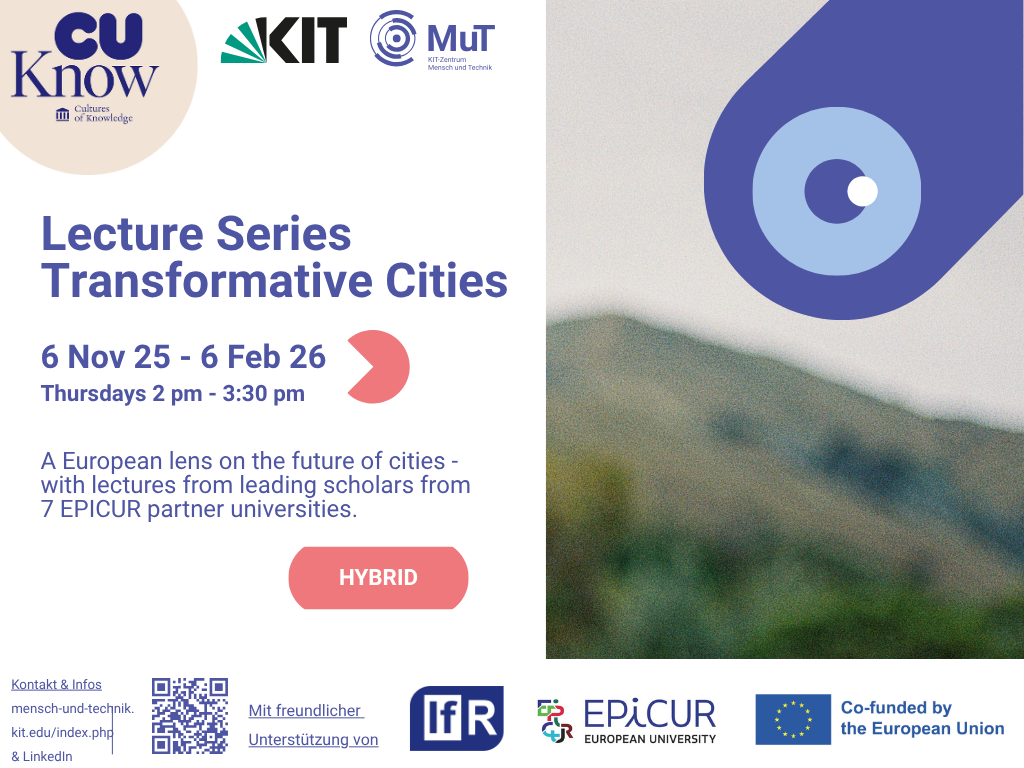Social and technological change requires inter- and transdisciplinary science.
The KIT-Center Humans and Technology (Mensch und Technik - MuT) offers its members an agile platform to help the joint commitment of scientists and change agents achieve greater impact. MuT promotes excellent research, education and collaboration as well as social dialogue to shape sustainable, transformative processes in socio-technical systems.

Keep up to date with the latest research in the field of humans and technology by subscribing to our MuT newsletter.

With the first symposium "Human Subject Research for Impact" on January 20, 2026, KIT is setting a visible sign for Science for Impact and marking the launch of the Human Subject Research Hub (HSR Hub).
more
The Bioblitz Advent calendar turned the run-up to Christmas into a journey of discovery: quiz questions, fun facts, and real species finds from Karlsruhe showed how diverse urban nature is and how easy it is for you to become a species finder too!
more
In 2025, our mobile participation lab, or MobiLab for short, traveled through the Upper Rhine region with the Eucor network for the second time. The goal of this year's roadshow was to make research on sustainability visible to everyone.
more
How do cities tackle global challenges? In the new CuKnow lecture series, experts from EPICUR universities offer insights into sustainability, resilience and inclusion, including case studies and strategies. You can also participate in individual lectures.
more
